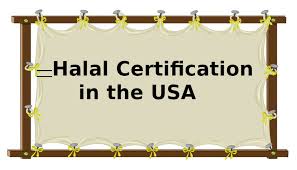Halal Certification has become an essential consideration for many businesses seeking to meet the needs of the rapidly growing global Muslim population, which comprises approximately 25% of the world’s consumers. One often overlooked but increasingly important question is whether Halal Certification is necessary for animal feed. As awareness about halal standards deepens, companies and consumers alike recognize that the integrity of halal products starts at the very beginning of the supply chain, including the feed given to animals. The American Halal Foundation (AHF), a globally recognized leader in halal certification, provides clarity and trusted certification services that address this vital aspect for businesses in the USA and worldwide.
Halal Certification for animal feed is crucial because the animals themselves must be raised according to halal guidelines to ensure their meat is permissible for consumption by Muslims. If the feed contains haram (forbidden) substances or ingredients derived from prohibited sources, it compromises the halal status of the animals and, consequently, the final products derived from them. AHF’s halal certification process rigorously evaluates animal feed to confirm that it complies with Islamic dietary laws, free from any prohibited elements such as pork derivatives, non-halal by-products, or alcohol-based additives. This ensures the entire production chain maintains halal integrity, strengthening consumer trust and brand credibility.
One of the major reasons businesses choose AHF for halal certification is the organization’s extensive international accreditations and recognitions. These allow companies to confidently serve halal consumers across diverse markets worldwide. For animal feed producers, securing halal certification through AHF not only verifies compliance with religious standards but also provides a competitive advantage. It opens doors to new markets and reassures halal-conscious consumers and manufacturers that their supply chain—from feed to final product—is fully compliant. This comprehensive coverage builds long-term trust with stakeholders, including consumers, regulators, and business partners.
AHF’s history of excellence in halal certification dates back to one of the earliest halal audits conducted in 1983. Since then, the organization has pioneered the establishment of rigorous halal standards, including those for animal feed. Their certification process includes detailed audits and inspections that cover raw materials, manufacturing processes, storage, and transportation of animal feed. This thoroughness ensures that every step adheres to halal principles and safeguards against contamination. It also reflects AHF’s commitment to providing a holistic halal certification program that aligns with both religious guidelines and modern food safety practices.
Trust forms the foundation of halal certification and is the cornerstone of AHF’s philosophy. The halal mark issued by AHF is a symbol of assurance to consumers that the products they purchase meet the highest standards of purity, ethics, and compliance. By extending certification to animal feed, AHF ensures that the entire supply chain is halal-compliant, from the very beginning of the animal’s life cycle. This commitment fosters transparency and reliability, essential qualities for businesses aiming to build a credible halal brand in an increasingly competitive global marketplace.
In conclusion, Halal Certification is indeed necessary for animal feed to maintain the halal status of the animals and the products derived from them. The American Halal Foundation’s globally recognized certification provides businesses with the assurance and credibility they need to confidently serve the expanding global halal market. With AHF’s comprehensive and trusted halal certification, companies can tap into one of the fastest-growing consumer segments worldwide, ensuring that every link in the supply chain, including animal feed, meets strict halal standards. This approach not only strengthens brand reputation but also supports consumer confidence and loyalty across international markets.





Comments